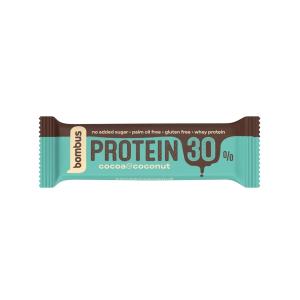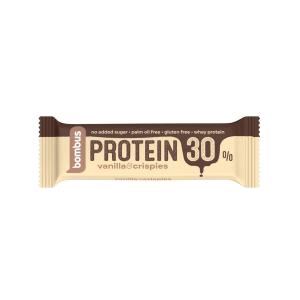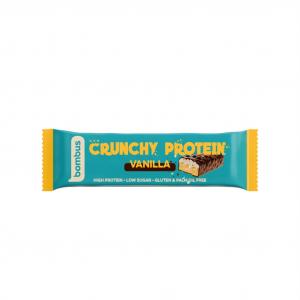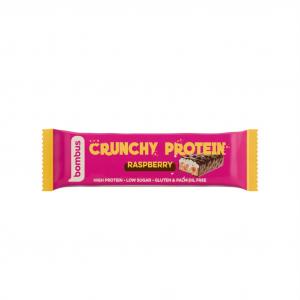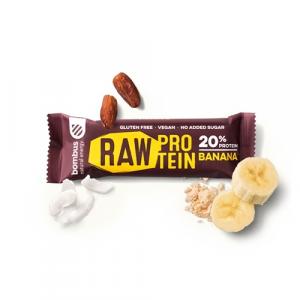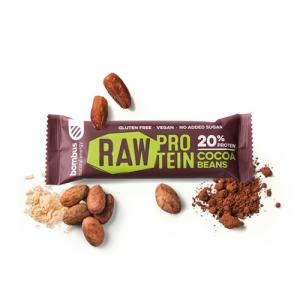
Gainer or protein? What suits your training and diet?

Gainer or Protein? What is the Difference and What to Choose for Your Goals?
In today's world, where fitness is one of the fastest-growing trends and a healthy lifestyle is becoming a priority across generations, more and more people are trying to understand what their body truly needs. Whether it's about gaining muscle mass, maintaining a slim figure, or supporting recovery – nutrition plays a key role. One of the frequent questions that arise for both beginners and advanced exercisers is the difference between protein and gainer. What is the difference between them? And most importantly – what is more suitable for you?
Protein or Gainer
At first glance, it may seem that these are just different names for the same thing. In reality, however, whey protein and mass gainer (a product designed for weight gain) serve different purposes and contain different nutrient ratios. While protein supplements are typically rich in proteins and have minimal sugars and fats, gainers have a high content of carbohydrates and calories. The difference between gainer and protein is therefore not just cosmetic – they are completely different products that respond to different body needs.
For example, if someone is starting with strength training and has trouble gaining weight – even with sufficient food intake – a mass gainer is an excellent choice to provide the necessary calories for muscle growth. Conversely, if someone is aiming for muscle definition, weight loss, or weight maintenance, whey protein is an ideal option.
When to Choose Protein and When Gainer?
Let's imagine two real scenarios.
The first scenario: Ondřej is a young student who weighs 65 kilograms, exercises daily, and his goal is to gain muscle mass. Despite eating enough, he doesn't have the genetic predisposition for easy muscle growth. For him, a gainer is an ideal choice because it helps him intake more calories without feeling overeaten. Additionally, it provides some protein to support muscle recovery.
The second scenario: Petra regularly attends circuit training, aims to tone her body, and sculpt muscles. In her case, whey protein is a suitable choice because it helps maintain muscle mass while not disrupting a calorie deficit. If she took a gainer, she might unknowingly hinder reaching her goal by simply consuming too much energy.
Try our natural products
This simple illustration shows one thing: goals and body constitution should determine whether protein or gainer is more suitable.
Mass Gainer vs. Whey Protein
Let's take a closer look at what these products actually contain.
Whey protein is a milk extract obtained as a by-product during cheese production. It contains a high proportion of proteins (usually 70–90%), naturally low fat and carbohydrates, and is quickly absorbable. This makes it an ideal supplement after a workout when the body needs to quickly replenish building materials for muscle recovery and growth. In addition, whey protein is rich in essential amino acids, especially leucine, which triggers muscle protein synthesis.
Gainer (mass gainer), on the other hand, combines proteins with carbohydrates, often in a 1:3 or even 1:5 ratio in favor of carbohydrates. This high sugar content (often maltodextrin or glucose) provides energy to the body and increases caloric value. In one serving, you can intake more than 600 calories. This is particularly important for people with a fast metabolism who have trouble consuming enough energy through a regular diet – a typical example of an ectomorph.
The Myth That Gainer is Unhealthy
There is often an opinion that gainers are "unhealthy," while proteins are "cleaner." The truth is, as usual, more complex. A gainer itself is not harmful – the problem arises if it is used inappropriately. If a person with a moderate energy expenditure uses a gainer daily as a supplement to a regular diet, they risk a calorie surplus, which can lead to gaining fat instead of muscles. Conversely, for an individual with high energy expenditure, a gainer can be an effective way to provide fuel to the body and support growth.
For example, professional cyclists or basketball players who train for several hours a day often cannot do without such supplements. Their body simply uses more energy than is possible to comfortably consume through a regular diet.
How to Choose the Right Product?
When choosing, it is advisable to follow a few basic criteria:
- Goal – do you want to gain weight, maintain weight, or lose weight?
- Body type – an ectomorph (slim, hard to gain weight) will need a different strategy than an endomorph (easily stores fat).
- Daily routine and physical activity – how much energy do you actually expend?
If you're unsure, it's recommended to try whey protein first, as it is more versatile and adapts to most goals. If after a few weeks you find that you can't gain weight, it may be suitable to add a gainer – or prepare it at home from natural ingredients, for example, by combining oats, banana, plant milk, and a spoonful of peanut butter.
Are Natural Alternatives Better?
In many cases, yes. If you don't want to consume industrially processed products, you can create your own protein or calorie drink. A natural protein shake can be made from plant proteins (such as pea or hemp protein), fruit, and almond milk. Conversely, a homemade gainer can contain a combination of complex carbohydrates (oats), healthy fats (nuts, avocado), and plant proteins.
Such a solution is not only cheaper but also gives more control over what you actually consume. Moreover, you avoid added sugar, artificial sweeteners, and unnecessary preservatives that are often found in cheaper commercial versions.
What Does Science Say?
A study published in the Journal of the International Society of Sports Nutrition states that higher protein intake helps improve body composition and support muscle growth, even without using gainers. On the other hand, gainers can be useful only if the overall energy intake is insufficient. In other words: protein is fundamental, gainer is a supplement.
As well-known sports nutrition expert Alan Aragon says: "Calories are king, but macronutrients are ministers. Without the right diet composition, even the best supplement won't help you."
What to Watch Out For?
When deciding which product to buy, it's good to focus on a few key things that can greatly influence its quality. The first thing worth checking is the sugar content – ideally, it should be within 10 grams per serving, especially if it's protein. The second important point is the type of proteins used – for example, whey isolate is generally purer and higher quality than regular concentrate, which can affect not only results but also how well your body can process it.
Also, be sure to check the composition for artificial sweeteners and fillers, because the more natural the product, the better for you. And if you're choosing a gainer, don't forget to look at the ratio of carbohydrates to proteins – the more proteins compared to sugars, the better the nutritional choice it is. Overall, the label often reveals more than the packaging and catchy slogans, so the smarter you read, the better you choose.
And remember: no supplement can replace a balanced diet and an active lifestyle. It is recommended to consult with a nutritionist or trainer, especially if you are new to dietary supplements.
Ultimately, there is no universal answer to the question "gainer vs. protein." It depends on your goal, metabolism, and lifestyle. But the more we understand what we eat, the closer we are to healthier and more effective training – and to the body we want to have.
